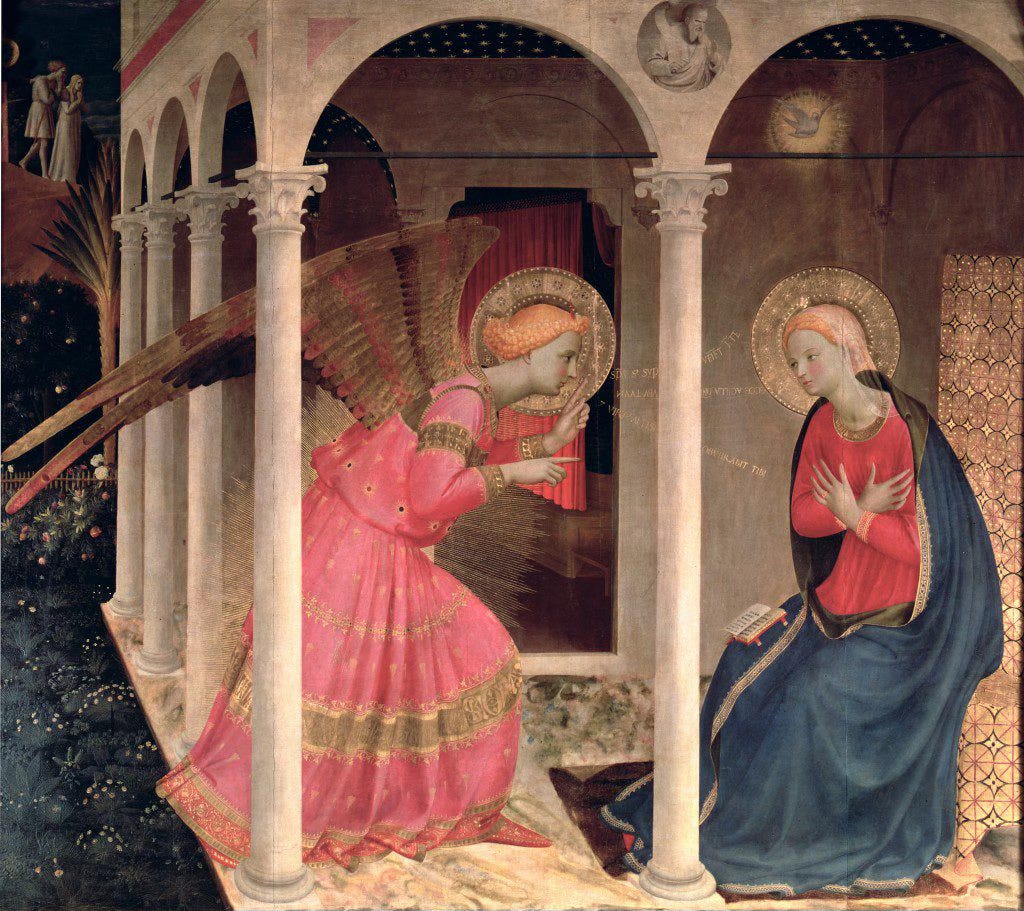The Divine Maternity of the Blessed Virgin Mary
Saturday, October 11th Readings Reflection: Saturday of the Twenty-seventh Week in Ordinary Time
Traditionally, today is the Feast of the Divine Maternity of the Blessed Virgin Mary. Added to the liturgical calendar in 1931 by Pope Pius XI, this feast commemorates the Third Ecumenical Council of Ephesus (431 AD), which defeated the Nestorian heresy that wrongly claimed Jesus’ human and divine natures are two separate natures and persons.
According to Nestorianism, Jesus’ human and divine natures are two separate natures and persons. The heresy held that Mary gave birth to Jesus the Man, not Jesus the Son of God. The Council of Ephesus infallibly declared that Jesus is one Person with two natures—a divine nature and a human nature. These two natures are miraculously present in the one Person of Jesus Christ, Who was conceived in the Blessed Mother’s womb. As a result, the Council infallibly declared, Our Lady is rightly called Theotokos, the God-bearer, in recognition of her divine maternity whereby she bore the incarnate Son of God.
On this beautiful feast that rightly commemorates the great dignity of Our Lady and her role in salvation history, the Church gives us a Gospel passage that is sadly sometimes misinterpreted as diminishing Our Lady’s role: “Blessed is the womb that bore thee, and the paps that gave thee suck. But [Jesus] said: Yea rather, blessed are they who hear the word of God, and keep it” (Lk 11:27-28 DRB).
In writing about this Gospel passage, St. John Chrysostom reminds us of the true interpretation of this verse, namely that Our Lord “sought not to disown His mother, but to show that His birth would have profited her nothing, had she not been really fruitful in works and faith” (Catena aurea). Mary’s dignity is due to the fact that she is the Theotokos, but her dignity is elevated because of her interior disposition. She was not merely the passive vessel by which the incarnate Christ was born; rather, she is full of grace, perfectly sinless and united to God through a life of faith and virtue.
Our Lady was conceived without Original Sin on her soul, and she freely chose to never commit a single sin throughout her life, even though she was capable of doing so. She chose to cooperate fully with the divine grace in her soul, thereby preserving herself as the spotless living Ark of the Covenant, housing within her womb the physical presence of the incarnate Lord.
The Council of Ephesus gave us the last line of the Hail Mary, in which we pray, “Holy Mary, Mother of God, pray for us sinners now and at the hour of our death.” The Feast of the Divine Maternity has become the Solemnity of Mary, Mother of God, which the new liturgical calendar observes on January 1st each year. Nonetheless, today’s traditional feast, which Providentially falls on a Saturday this year, can give us the opportunity to meditate on Mary’s role as the Theotokos, Mother of God and Mother of the Church, through whom all graces are dispensed.
O Virgin Mother of God, He Whom the whole world cannot contain, being made man, imprisons Himself in thy womb (Alleluia verse for the Feast of the Maternity of the Blessed Virgin Mary).



❤️🔥
Can you point to a scripture on which you based your statement, “ Mary was born without original sin”? Thank you !